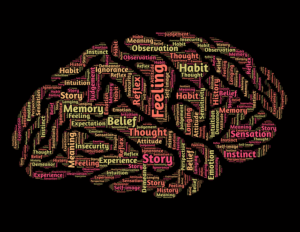Are you feeling overwhelmed and stressed out? Are you struggling to find ways to cope with your anxiety? Look no further than the healing power of music.
Music therapy has been proven to reduce stress and anxiety, improve mood, and promote relaxation. By incorporating music into your daily routine or working with a trained music therapist, you can experience the many benefits of this powerful form of therapy.
Research shows that listening to calming music can have a positive effect on both the brain and body. It can lower heart rate and blood pressure, reduce muscle tension, and increase feelings of well-being. Additionally, playing an instrument or singing can provide a creative outlet for self-expression and help release pent-up emotions.
Whether you prefer classical piano pieces or upbeat pop songs, there is a type of music that can help alleviate your stress levels. So why not give it a try? With its numerous benefits for mental health and well-being, music therapy may be just what you need to find inner peace in today’s busy world.
Understanding the Benefits of Music Therapy
 You’ll be pleasantly surprised to learn how jamming out to your favorite tunes can actually do wonders for your mental health. Music therapy research has revealed that music can have a profound effect on the mind and body. It’s an effective tool used by therapists to help their clients overcome emotional, cognitive, and physical challenges.
You’ll be pleasantly surprised to learn how jamming out to your favorite tunes can actually do wonders for your mental health. Music therapy research has revealed that music can have a profound effect on the mind and body. It’s an effective tool used by therapists to help their clients overcome emotional, cognitive, and physical challenges.
Music therapy techniques are designed to elicit specific responses from the listener. For example, slow and calming music can reduce anxiety levels, while upbeat music can boost energy and motivation. Research has also shown that listening to music releases dopamine in the brain, which is associated with pleasure and mood regulation.
Moreover, music therapy has been successful in reducing stress levels in both healthy individuals and those with medical conditions such as cancer or chronic pain. It provides a non-invasive approach to promote relaxation, reduce muscle tension, and improve overall quality of life.
So, next time you’re feeling stressed or anxious, don’t hesitate to turn up the volume on your favorite playlist!
How Music Affects the Brain and Body
Your brain and body are like a symphony orchestra, with different parts working together in harmony when exposed to the right kind of music. Music has a powerful impact on the brain by promoting brainwave synchronization. This means that music can help different areas of your brain work together more effectively, which can reduce stress and anxiety.
Physiological responses to music include changes in heart rate, blood pressure, and respiration. Slow, calming music can help slow down your heart rate and breathing, which can promote relaxation. On the other hand, fast-paced music can increase your heart rate and make you feel more alert and energetic.
Research has shown that listening to music releases dopamine in the brain, which is a chemical associated with pleasure and reward. This means that listening to enjoyable music can actually make you feel happier and less stressed.
By understanding how music affects the brain and body, we can use this knowledge to develop effective music therapy techniques for reducing stress and anxiety.
Choosing the Right Music for Stress Relief
Picking the perfect tunes to soothe your soul is as simple as identifying your preferred genre and selecting songs with a slow tempo and low volume.
This process of genre selection is crucial in creating an environment that suits you best, allowing you to experience the full benefits of music therapy for stress.
For instance, classical music has been shown to lower blood pressure and heart rate, while soft jazz or acoustic folk can provide a calming effect.
Apart from genre selection, mood regulation is also important when choosing music for stress relief.
To achieve this, consider picking tracks that align with your current emotional state.
If you’re feeling anxious or overwhelmed, opt for mellow songs with lyrics that offer positive affirmations or speak to overcoming challenges.
Alternatively, if you’re feeling down or depressed, select more uplifting tracks that evoke feelings of joy and happiness.
In addition to these tips on choosing music for stress relief, it’s essential to remember that everyone’s preferences are different.
What works well for one person may not work as well for another. Therefore, don’t be afraid to experiment with different genres and songs until you find what suits you best.
With time and practice, you’ll learn how to use music effectively as a tool for reducing stress and anxiety in your daily life without any adverse side effects.
Incorporating Music into Your Daily Routine
It’s time to crank up the tunes and make them a part of your daily routine to add some pizzazz to your day! Incorporating music into your everyday life is an excellent way to reduce stress levels and promote relaxation.
Creating playlists that include your favorite songs can help you feel more connected with the music, making it easier for you to unwind.
Finding time for music in your daily routine can be challenging, but it’s important to prioritize self-care. Whether you’re listening to music during your morning commute or while cooking dinner, incorporating music into your routine can do wonders for reducing stress levels.
Try setting aside at least 15-30 minutes each day just for listening to music.
If you’re struggling with finding the motivation to incorporate music into your daily routine, try experimenting with different genres and styles until you find what works best for you.
Classical or instrumental pieces are great options if you’re looking for calming background noise, while upbeat pop or rock songs can provide an energetic boost during exercise or household chores.
Whatever type of music helps you relax and de-stress is worth adding into your everyday life without fail!
Working with a Music Therapist for Maximum Results
You’ll be amazed at how much more connected you can feel to your emotions and well-being when working with a trained music therapist, who can help guide you on a journey of self-discovery through the power of sound.
Collaborating with a therapist allows you to explore different techniques and exercises that are tailored to your specific needs and preferences. By using music as a tool, therapists can help you tap into the healing power of sound and create personalized playlists that promote relaxation, reduce stress levels, and improve overall mental health.
In addition to helping you develop coping skills for dealing with stress and anxiety, working with a music therapist also involves setting realistic goals and tracking progress throughout the therapeutic process. By doing so, you’ll be able to see tangible improvements in your mental health over time.
Your therapist will work closely with you to identify areas where progress is being made or where additional support may be needed. Overall, working with a music therapist offers many benefits for reducing stress levels and promoting emotional well-being.
Whether it’s learning new techniques for managing anxiety or developing personalized playlists for relaxation, there are many ways in which music therapy can help enhance your quality of life. So don’t hesitate to reach out to a trained professional today!
Can music therapy completely cure stress and anxiety?
Are you wondering if music therapy can completely cure stress and anxiety?
While there’s no one-size-fits-all answer to this question, studies have shown the effectiveness of music therapy in reducing symptoms of stress and anxiety. However, it’s important to note that the long term effects of music therapy may vary from person to person.
Some individuals may experience significant improvement in their mental health, while others may not see as much progress. Nonetheless, incorporating music therapy into your overall wellness routine can potentially bring about positive changes in your mood and overall well-being.
Are there any specific genres of music that should be avoided during music therapy for stress?
When it comes to music therapy for stress, there are both benefits and drawbacks to using calming versus upbeat music.
Calming music has been shown to reduce heart rate and lower cortisol levels, which can be helpful in managing stress. However, some people may find that upbeat music is more effective in boosting their mood and providing a distraction from stressful thoughts.
It’s important to incorporate personalized music preferences into a stress therapy plan, as this can increase engagement and motivation. Avoiding specific genres of music isn’t necessary unless they are triggering for the individual.
Ultimately, the best approach is one that works best for the person receiving treatment.
Can listening to music be just as effective as working with a music therapist?
Imagine you’re feeling overwhelmed and stressed out from work or personal life. You decide to try listening to music as a form of therapy, but wonder if it could be just as effective as working with a music therapist.
While self-guided music listening can certainly have benefits such as relaxation and mood regulation, it may not address underlying emotional issues like a trained therapist can. However, the cost comparison between traditional therapy for stress and music therapy is worth considering.
Music therapy sessions can be more expensive due to the specialized training and equipment needed, while self-guided music listening is often free or low-cost. Ultimately, finding what works best for your individual needs and budget is key in reducing stress through the power of music.
### Is it necessary to have any prior musical knowledge or experience to benefit from music therapy for stress?
Musical aptitude or prior musical knowledge is not a requirement to benefit from music therapy for stress. A qualified music therapist can use various techniques and interventions tailored to your specific needs, regardless of your level of musical experience.
However, the therapist’s qualifications are crucial in ensuring the effectiveness of the therapy and achieving measurable outcomes. A competent music therapist has extensive training in psychology, counseling, and music theory to provide evidence-based treatments that cater to individual needs.
Therefore, it’s essential to seek out a licensed and experienced music therapist for optimal results.
What is the success rate of music therapy for stress compared to other forms of therapy?
Did you know that music therapy has been found to be just as effective, if not more so, than medication in reducing symptoms of stress and anxiety?
According to a study conducted by the American Music Therapy Association, music therapy results in significant reductions of stress and anxiety levels.
Additionally, unlike medication which can have negative side effects and is often only a short-term solution, music therapy has long term effects that can continue even after the sessions have ended.
So if you’re looking for a natural and effective way to manage your stress levels, consider giving music therapy a try!
So, are you ready to try music therapy for stress relief? Understanding the benefits of music therapy and how music affects the brain and body is crucial in choosing the right music for your needs. Incorporating music into your daily routine can also help reduce stress and anxiety.
But if you’re really looking to maximize the results, consider working with a trained music therapist. They can guide you through personalized sessions that target specific areas of stress or anxiety. With their expertise, you’ll experience even greater benefits from this powerful form of therapy.
So, why not give it a try and see how music can transform your life?





